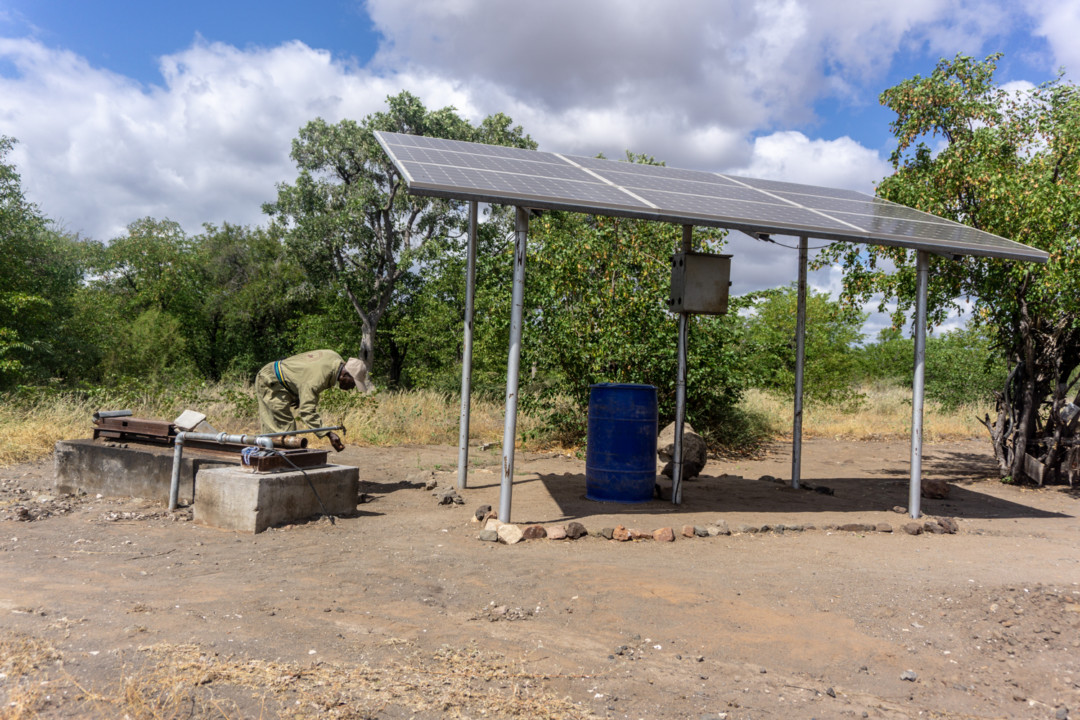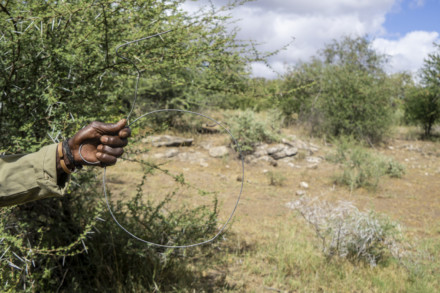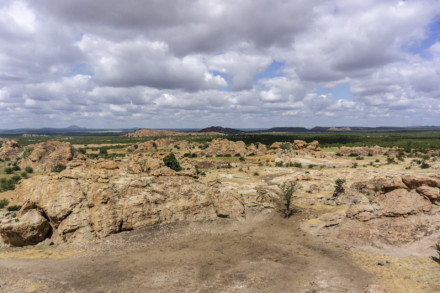22 April 2017
Beitbridge District, Zimbabwe
Edmore Ndou
Profession
Security
Motive
Environmental and indigenous activism


Adolfo Olivas


Ahmed Divela


Amit Jethwa


Artan Cuku


Babita Deokaran


Bayo Ohu


Berta Cáceres


Bhupendra Veera


Bill Kayong


Boris Nemtsov


Boško Buha


Chai Boonthonglek


Charl Kinnear


Chut Wutty


Chynybek Aliev


Cihan Hayirsevener


Daphne Caruana Galizia


Darío Fernández


Derk Wiersum


Deyda Hydara


Édgar Quintero


Edmore Ndou


Edwin Dagua


Federico Del Prete


Fernando Villavicencio


Gezahegn Gebremeskel


Gilles Cistac


Habibur Mondal


Igor Alexandrov


Jacob Juma


Ján Kuciak


Javier Valdez


Joannah Stutchbury


José Ángel Flores


Jules Koum Koum


Kem Ley


Luis Marroquín


Mahamudo Amurane


Marcelo Rivera


María Elena Ferral Hernández


Marielle Franco


Milan Pantić


Milan Vukelić


Muhammad Khan


Nelson García


Nihal Perera


Oliver Ivanović


Orel Sambrano


Perween Rahman


Peter R. de Vries


Rajendra Singh


Salim Kancil


Sandeep Sharma


Sikhosiphi Radebe


Slaviša Krunić


Soe Moe Tun


Victor Mabunda


Virgil Săhleanu


Wayne Lotter


Yuniol Ramírez


Zezico Guajajara
22 April 2017
Beitbridge District, Zimbabwe
Profession
Security
Motive
Environmental and indigenous activism
In the vast savanna bushlands spanning Zimbabwe and South Africa’s border region, Edmore Ndou, 28, was shot one afternoon in April 2017 after pursuing two men who were supposed to be working as his colleagues. He was killed as he tried to stop the poachers from laying snares to trap wild animals on Nengasha Safaris’ hunting concession in Zimbabwe’s southern borderlands.
A local wildlife ranger, Ndou had trained at the Mushandike College of Wildlife Management. In 2013, he joined Nottingham Estate, a private fruit and ecotourism estate, as a ranger and worked for the company’s subsidiary, Nengasha Safaris.
On the day Ndou was killed, the poacher patrol unit had been tracking a pair of poachers for more than 12 hours. Ndou and two other rangers had discovered that two guards, Petros Sifelani, 35, and Bino Ndou, 42 – employed as seasonal workers to protect the solar pumps of a dam – were in fact laying snares to trap impalas for sale as bushmeat.
A pack of seven rangers had set out to find the pair but, as the hours wore on and day turned to night, three scouts were left. Armed with batons and a shotgun, Ndou and his two remaining partners were ambushed by the poachers. Sifelani and Bino Ndou were waiting at the top of the hill for the rangers, then charged down towards the trio as soon as they were spotted. The game scouts ordered the pair to surrender, but an argument ensued and Ndou was shot in the thigh by Bino Ndou’s Remington shotgun, and fell to the ground. The poachers fled the scene as Ndou lay bleeding profusely.
His colleagues immediately sent an SOS to Ishmael Tshabalala, the head of security at Nottingham Estate. ‘I received a text message saying someone had been shot. I didn’t even think to ask who. I just drove straight to the station,’ he recalled. Although he followed company safety procedures, looking back, Tshabalala said he wished he could have done more. ‘I regret not going there sooner. Maybe I could’ve been able to save Eddie’s life. By the time [I arrived] it was too late – he’d lost too much blood – he’d lost too much blood. We tried to rush him to our [Nottingham Estate] clinic. That’s where he died, 20 minutes later,’ said Tshabalala.
Tshabalala said he was aware that the two guards were involved in poaching.
Seasonal workers regularly move across the border between South Africa and Zimbabwe, resulting in the frequent passage of poached wildlife and smuggled goods. Locally, poachers sell game meat to restaurants in Beitbridge, but their networks also extend to South Africa.
According to Phil Palmer, owner of Nengasha Safaris, Ndou is one of dozens of rangers shot every year by poachers belonging to Zimbabwe’s poaching networks in the country’s south; meanwhile, in northern Zimbabwe, poaching operations have transnational networks that reach as far as China. Palmer said that in recent months Beitbridge’s poachers had become more sophisticated in their approach to stealing wild game and firewood. ‘These are well-organized poachers. It’s a strong concern that they move around with large packs of dogs and getaway vehicles. In one night, we can lose up to 10 impala or a kudu bull, which is worth quite a lot of money,’ he said. Since 2018, Nengasha’s rangers have retrieved more than 500 snares.
As a local whose family had lived on the land for generations, Bino Ndou felt he was entitled to hunt game and sell it as a livelihood. ‘It’s my right,’ he reportedly said to Tshabalala a few days after Ndou’s murder. According to Tshabalala, people in the surrounding villages, such as Makhakhule, or Nzambe, where Bino came from, claim they have a perpetual right to the wildlife that thrives on their traditional land. As Palmer points out, Nottingham Estates’ hunting concession entitles the local communities to only a portion of the profits made by wildlife activities, such as hunting paid for by tourists, or to buy hunted carcasses at a subsidized rate.

John Ndlovu stands by the solar pump that Edmore Ndou’s killer was hired to guard

John Ndlovu holds a wire snare of the sort often found on the land, used to trap small game, such as impala

The unremitting landscape of Nottingham Estate. In the distance lies South Africa, where local syndicates smuggle illegal goods for sale or on behalf of wealthy merchants
Elsewhere in Zimbabwe, under the Communal Areas Management Programme for Indigenous Resources, known as Campfire, local communities receive full or partial benefits from hunting licences that are sold to trophy and sport hunters.
According to the International Union for Conservation of Nature, one of the biggest threats to wildlife in east and southern Africa is the bushmeat trade. The rampant nature of poaching has a severe impact on tourism revenue, and researchers estimate that, in Zimbabwe, the financial impact of illegal hunting is at least US$1.1 million annually.
Poaching thrives in Zimbabwe’s communal areas because of weak penal systems, enabling the illicit practice to continue, with some of the produce being taken across the border to South Africa. According to Palmer, bushmeat is also sold to artisanal miners in West Nicholson, a rural town some 150 kilometres north of Beitbridge, who smuggle gold to South Africa.
Poverty, unemployment and poor border controls are some of the underlying reasons that young men are lured into joining poaching rings, some of which have affiliates among the politically connected in Beitbridge or wealthy kingpins south of the Limpopo River. In the past, criminal networks, such as the notorious Musina Mafia, a gang of rich South Africans, have supplied Zimbabwean poachers with rifles to kill rhino for their horns and zebra for their skins.
Bino Ndou admitted he had committed the crime, but did not say who he was working for. He was sentenced to 15 years in jail; Sifelani, his accomplice, was given a fine.
Two years after Ndou’s death, his workmates are still bitter about the incident. They are also afraid that the poaching gangs may one day come after them. Upon discovering a fresh set of footprints, just a few hours old, near the place where Ndou had been shot, Rabson Mabhena, a Nengasha ranger, sighed: ‘They’ve just shot someone. These poachers don’t care; they are greedy. What happens if tomorrow they come for us?’ he asked.


16 January 2019
Accra, Ghana
Ahmed Divela


23 August 2021
Johannesburg, South Africa
Babita Deokaran


20 September 2009
Akowonjo, Lagos State, Nigeria
Bayo Ohu


18 September 2020
Cape Town, South Africa
Charl Kinnear


16 December 2004
Kanifing, Gambia
Deyda Hydara


21 April 2018
Johannesburg, South Africa
Gezahegn Gebremeskel


3 March 2015
Maputo, Mozambique
Gilles Cistac


5 May 2016
Nairobi, Kenya
Jacob Juma


15 July 2021
Kiambu, Kenya
Joannah Stutchbury


4 November 2011
Yaoundé, Cameroon
Jules Koum Koum


4 October 2017
Nampula, Mozambique
Mahamudo Amurane


22 March 2016
Mbizana, Eastern Cape, South Africa
Sikhosiphi Radebe


10 January 2018
South Africa
Victor Mabunda


16 August 2017
Dar es Salaam, Tanzania
Wayne Lotter